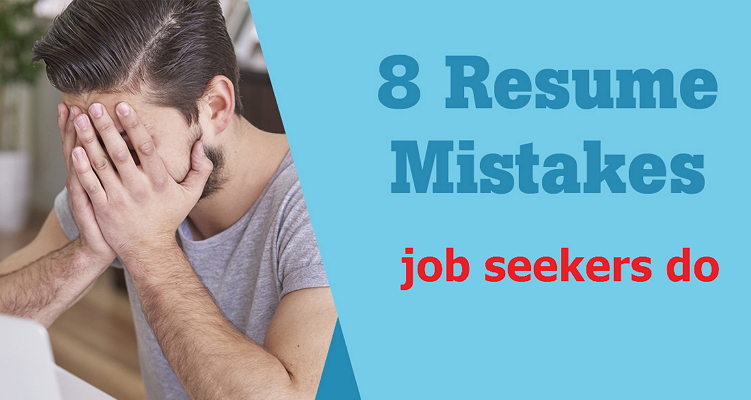10 common Resume Building Mistakes
1. My CV should contain all my previous jobs, together with details of my skills and experience.
As we all know your CV is your passport to an interview, it should contain only relevant details that are applicable to that job. It has been seen many times that candidates display a whole list of jobs ever done with full detailing, some of which in no way would be connected to the job. Listing of jobs unnecessarily bogs down the employer. Indeed it is important to list down the jobs done so far but in a condensed format so that the employer can easily trace your career path.
2. The more information I include on my CV is better.
Throwing too much information is equally damaging as providing too less information, since it indicates that you are trying to create a fluff around a weak application. Your CV should be easy to read and supply only relevant information to the employer. Do not be agitated to include very training course, internship or hobby that you have undergone during your career.
3. My CV will be read with interest by every employer who receives it.
You must appreciate the fact that the employer has to go through a whole stack of CV in response to a single job opening. They do not have the time in the world to go through each application deeply and select the most suitable applicants. Since you do not get such an opportunity every time, it therefore becomes crucial to grab the recruiters attention within the first few second of reading but indicating the specific skills and knowledge needed to do the job.
4. My CV will get me the job I want.
The primary aim of CV is to get you towards the interview pedestal. You must have the clarity to differentiate between getting an interview call and getting a job. It has been observed that candidates often approach the whole process of job search with a completely different notion of getting a job, but that does not always holds true. This only leads to frustration when they are not invited for interviews since enough care is not taken while producing the CV.
5. My CV could be prepared better by a professional service.
It is only YOU who knows the best about yourself then how can a professional decide about your presentation skills and knowledge. There are thousands of online applications, firms and free-lancers offering services of CV building who use a predefined format. These formats might not be the best fit in your case. Remember nobody knows you better, so stick to your own style and produce a CV that represents your thoughts, not of a third party vendor.
6. My CV content is more important than its appearance
As it has been said many times before, that CV is a presentation of what you are, so holding a CV with a bad print or some marks will only bring bad impression. No matter how well you are qualified and how well the CV has been written it would only bring a wrong impression on the recruiter. Also you may have heard that bright CV with some graphics highlights looks attractive, but how would it appear if a financial analyst sends a CV on a bright pink paper would definitely bring attention of the employer but it definitely seems unprofessional. It is therefore suggested to send a subtle CV on clean white paper with proper print.
7. My CV will become impressive if I tell a few lies.
The sole objective of a CV is to extract as much information about the candidate about the skills, knowledge and experience which he holds so as to invite him for the interview. Any kind of manipulation in the information provided on the CV not only calls for simple rejection but might cost you heavily in the future as well. You might be tempted to exaggerate your skills and experience to get to the interview stage and to brush it over when called for, but that does not really happen. It then becomes awkward for both the interviewer and the candidate to face such a situation. For instance you may have exaggerated your experience in the CV but it might not be as impressive as the interviewer thought which makes the environment uncomfortable.
8. My CV should be atleast 3 pages long
“Sometimes your circle decreases in size, but increases in value.”
Your CV is not about the length of the CV but the quality of information it contains. It is the first page of the CV that attracts the attention of the recruiter. You must not bore the employer with detailed pages and pages of irrelevant information. It is equally important to not make the CV too short as it may fail to sell your qualities properly. It is suggested to produce a CV of no more than 3 pages in the worst case scenario.
9. My CV should include a recent photograph
Attaching a photograph to the CV will make your profile stick in the mind of the recruiter and you are likely to be remembered by your picture but this may lead to discrimination on the ground of your looks. It is therefore suggested to not place your picture and keep it simple and as per the requirement.
10. My CV should be in my own handwriting
Since handwritten CV’s do not hold the same look and feel as typewritten CV as it can majorly damage your chances of getting to the interview stage. You may assume that your handwriting is legible to follow and easy to go through but this may not be the case with employer then it would certainly blow your chances of gaining the interview. Handwritten applications are only deemed acceptable when you have been specifically asked for but this does not hold well in the general case



